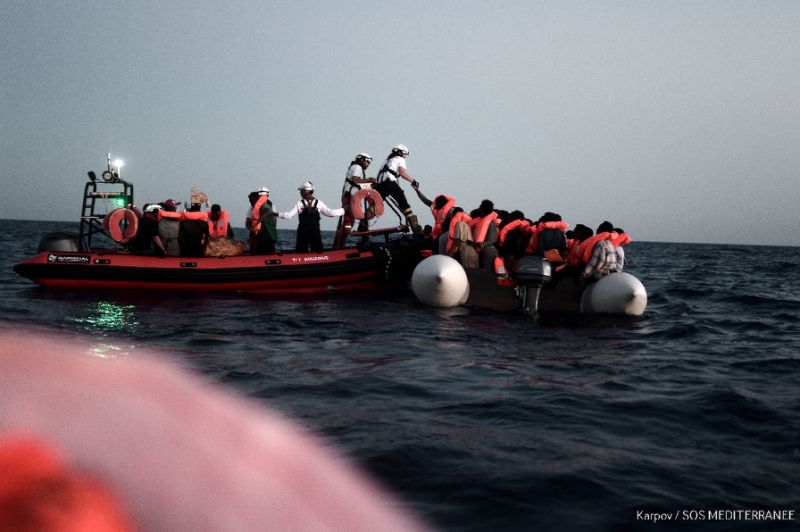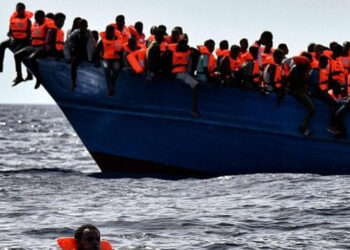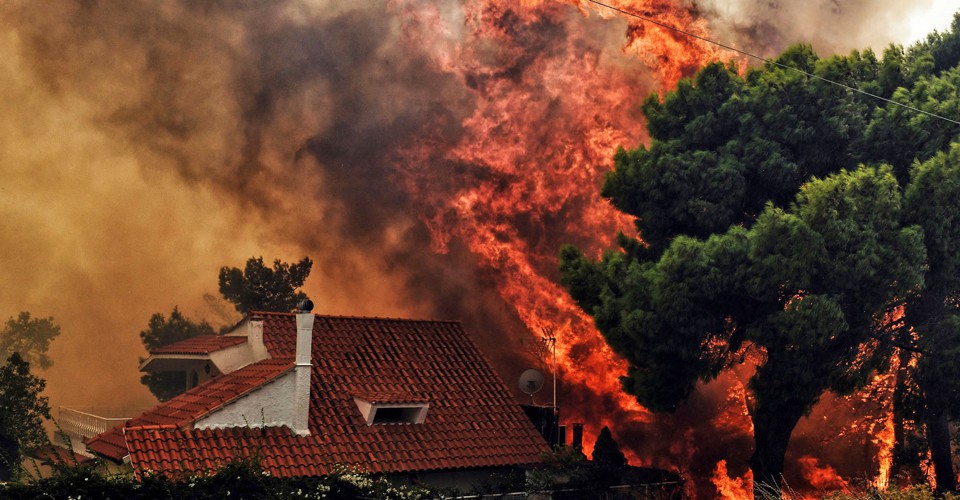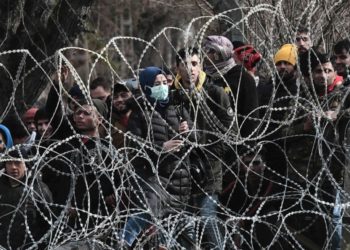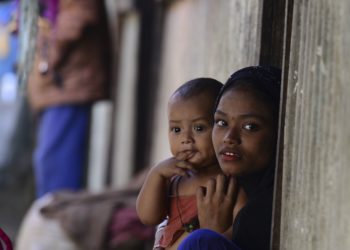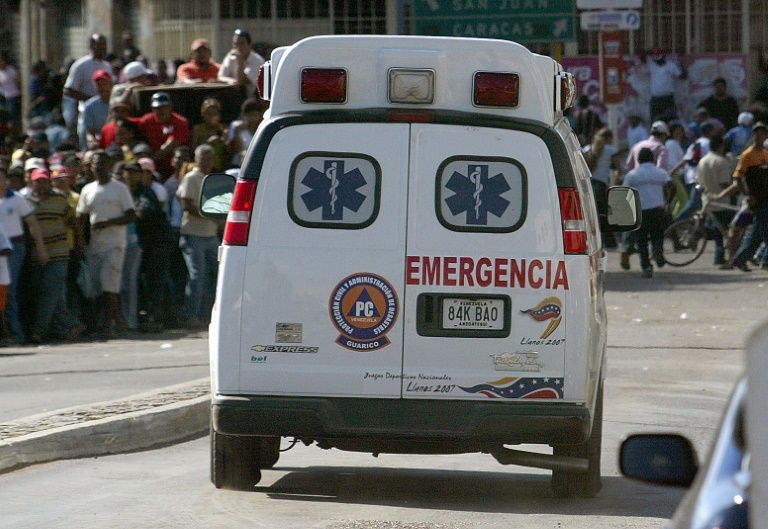On Sunday the newly formed Italian government refused to allow the Aquarius, a search and rescue vessel containing 629 passengers, including 120 unaccompanied children and seven pregnant women rescued from the sea, to dock on Italian territory. In language reminiscent of President Donald J. Trump justifying his widely criticised travel-ban, Italy’s the League leader, Matteo Salvini, argued it was time to “stop the filthy business of illegal immigration.”
This is just the latest illustration of the challenges facing the Common European Asylum System, and a failure of concerted efforts to harmonize state responses to irregular migration. It also hints at the relationship between the institutional failure to respond to the perceived migrant “crisis” and the rise in populist, anti-E.U. politics which have contributed to the existential threat facing the European Union.
Perceptions of Crisis
The common European asylum system was founded on efficient and fair asylum procedures which should be applied consistently across the 28 E.U. member states, but as the number of people applying for asylum peaked at 1.26 million in 2015 and thousands of people lost their lives making a perilous journey from North Africa, a sense of crisis descended.
As states on the southern border of Europe struggled to receive and process arrivals, asylum seekers continued to engage in secondary movement towards countries where there was a greater chance of protection and better reception conditions.
European media documented brutal responses of border guards in Hungary and Austria; culminating in the eventual suspension of all returns under the Dublin Regulation by Germany. Yet if we take a step back, the increase in irregular migration was both foreseeable and not without precedent.
The Syrian civil war, how in its 7th year, has led to the external displacement of over 7 million people. The vast majority are living precariously in the region of origin, notably Turkey, Jordan, Lebanon and Iraq. The international aid received to manage this humanitarian demand is inadequate, and the impact on host populations is causing increasing strain: Syrians now make up over 1 in 5 of the population in Lebanon and over half are living in extreme poverty. The absence of a secure status and the prolonged, intractable nature of the conflict has inevitably led many to seek protection outside the region.
Lessons could have been learned from the humanitarian crisis that arose during the dissolution of the Former Republic of Yugoslavia in Eastern Europe. As Croatia closed its border to Bosnians escaping the violence, Germany accepted over 330,000 refugees from the conflict. Sweden took 50,000 refugees and the U.K. 6,600. The number of asylum applications peaked during the conflict with 700,000 applications in the 15 E.U. member states in 1992.
It has since been relatively stable until the Syrian conflict. The creation of a European asylum policy in 1999 morphed from minimum to uniform standards across the E.U. and should have laid the foundations for a managed, equitable response that respected rights under the 1951 Refugee Convention. Yet the policy unraveled at the point when it was most needed.
Crisis Mismanagement
While the absence of planning for the exodus from Syria is regrettable, it has served to undermine the legitimacy of the European Commission and been a catalyst for a rise in populist, nationalist politics. It has also revealed deep-rooted divisions concerning the European project which, according to Article 2 of the Treaty on the European Union, is founded on pluralism, non-discrimination, tolerance, justice, solidarity, and equality.
The complete failure of Poland, Czech Republic, Slovakia, and Hungary (the V4 states) to respond to the imposition of a mandatory quota scheme illustrated the considerable weakness in the institutional capacity to enforce European obligations, despite the victory for the European Commission in the Court of Justice establishing the legality of the measure.
According to the Polish interior minister, Mariusz Blaszczak, “the relocation methods attract more waves of immigration to Europe; they are ineffective.” Viktor Orban, Prime Minister of Hungary, has been unequivocal in his language; allowing entry for refugees also means “importing terrorism, criminalism, anti-Semitism, and homophobia.”
The relocation initiative was implemented to distribute 160,000 asylum seekers trapped in Italy and Greece. The initiative ended in September 2017 with an estimated 17.5 percent of the target number relocated. The E.U.-Turkey readmission deal which provided for the relocation to Turkey of new arrivals in Greece in exchange for the European resettlement of one refugee in Turkey did reduce the number of arrivals, but resettlement progress was questionable.
The deal, at the cost of 6 billion euros, was widely criticised by human rights groups who pointed to Turkey’s poor human rights record, its refusal to apply the Refugee Convention to provide security of status, and its economic capacity to manage the 3.5 million refugees now on its territory.
While Turkey has effectively become a huge extra-territorial processing camp, the current situation remains dire for an estimated 47,000 people, including over 1225 unaccompanied children, trapped in Greek camps. Many are waiting for relocation and have claims to family reunion as families are now fractured and divided across European states.
The Continued Demand for Protection
While the Syrian conflict has exposed considerable weaknesses in the European asylum mechanisms, it must be remembered that irregular migrants continue to arrive from other parts of the world.
Nationals of Eritrea and Syria were selected for European resettlement due to the 75 percent chance of a successful asylum application. Citizens of other countries, including Afghanistan and Iraq, have not benefitted at all from relocation and resettlement despite many having credible claims for protection. This has undermined the Refugee Convention, creating a two-tier system of refugee protection based on nationality.
There is no sign that the demand for protection will abate in the near future. If anything, new challenges such as climate change and continued global insecurity will increase the demand for protection along with economic migration. The E.U.’s Agenda for Migration in 2015 set out proposals to adopt a mixed migration strategy, opening up possibilities for much needed economic migration while maintaining protection for asylum seekers through tradable quotas. As it stands, this appears to be a distant dream.
Disclaimer: The views and opinions expressed here are those of the author and do not necessarily reflect the editorial position of The Globe Post.

